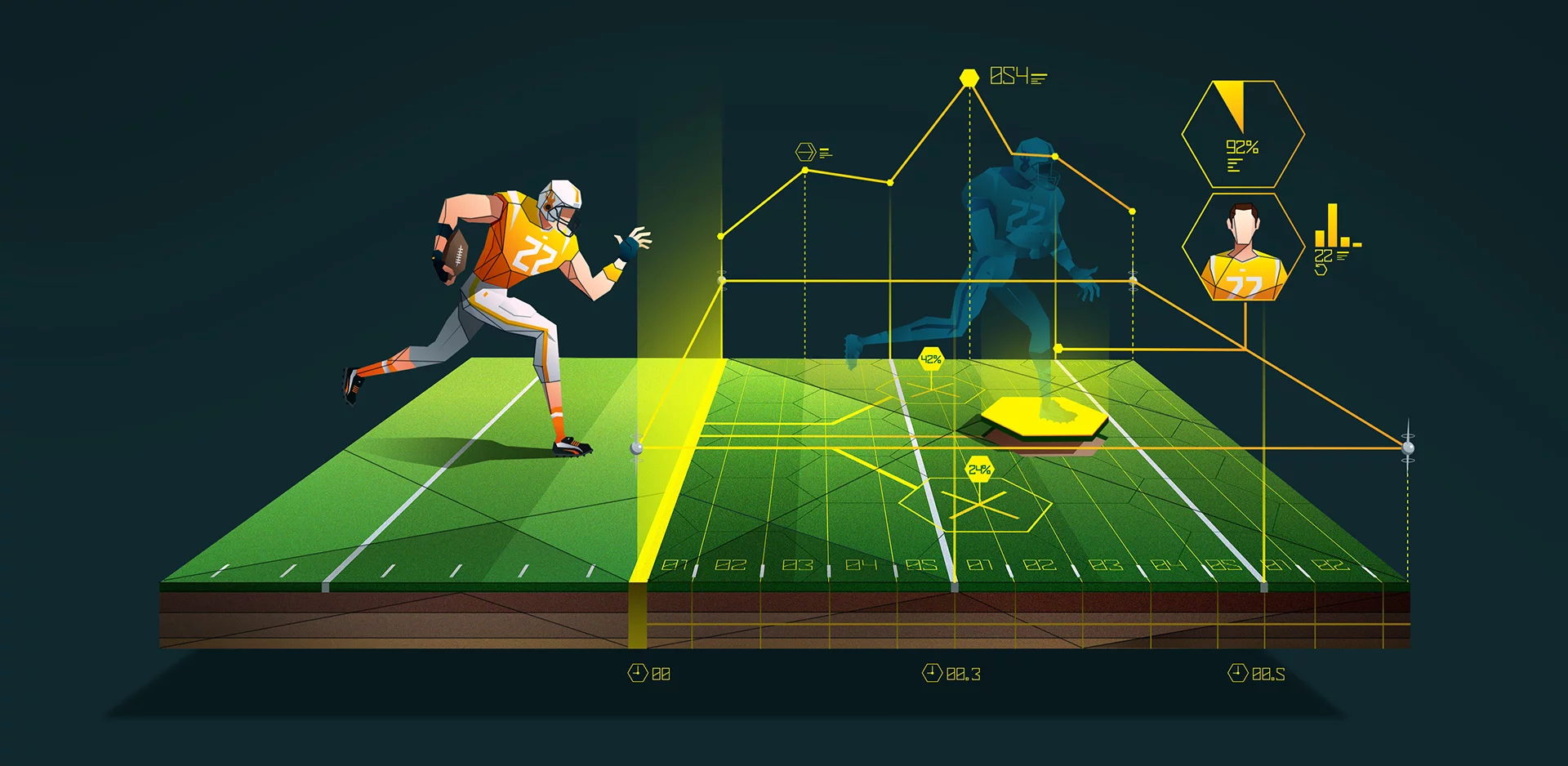The Tech Transformation of Sports
In today’s digital era, technology has become an essential asset in various aspects of our lives, including the realm of sports. From boosting athlete performance to transforming the fan experience, technological advancements have fundamentally reshaped the sports industry in unprecedented ways. This piece delves into the dynamic correlation between technology and sports, examining the innovations that have revolutionized the landscape of athletic competition and spectator engagement. Let’s delve into “The Tech Transformation of Sports”.
Wearable Technology
Wearable technology has become a game-changer in the sports world. Athletes now have access to devices that can monitor their biometrics in real-time, offering valuable insights into their performance levels and overall health. From smartwatches that track heart rates to GPS-enabled devices that measure distance covered, wearable technology has empowered athletes to optimize their training and minimize the risk of injuries.
Virtual Reality in Training
The integration of virtual reality (VR) in sports training has redefined how athletes prepare for competitions. VR simulations enable players to experience realistic game scenarios, enhancing their decision-making abilities and situational awareness. Through immersive training environments, athletes can refine their skills, strategize effectively, and mentally prepare for high-pressure situations, ultimately elevating their performance on the field.
Data Analytics for Performance Enhancement
Data analytics has emerged as a pivotal tool for sports professionals seeking a competitive edge. By leveraging advanced algorithms and data-driven insights, coaches and teams can assess player performance, identify strengths and weaknesses, and devise tailored training regimens. Comprehensive data analysis facilitates informed decision-making, leading to strategic game planning and the optimization of team dynamics.
Smart Stadiums
The concept of smart stadiums has transformed the spectator experience, offering fans a seamless and immersive journey from the moment they enter the venue. With the integration of IoT (Internet of Things) devices and high-speed connectivity, stadiums now provide interactive and personalized experiences, including in-seat ordering, augmented reality experiences, and real-time updates on game statistics, enriching the overall ambiance and engagement during live sporting events.
Instant Replay Technology
The implementation of instant replay technology has revolutionized the officiating process in sports, ensuring accurate and fair decision-making during critical moments of a game. Using high-definition cameras and video review systems, referees and officials have the ability to examine disputed plays, evaluate the accuracy of decisions, and make well-informed judgments, thereby reducing human errors and potential disputes that might affect the outcome of a game.
Impact on Fan Engagement
Technology has significantly enhanced the connection between sports teams and their fan base, fostering a deeper sense of engagement and loyalty. Social media platforms, interactive apps, and online communities enable fans to actively participate in discussions, access exclusive content, and form a direct bond with their favorite athletes and teams. This digital connectivity has transcended geographical boundaries, allowing fans worldwide to share their passion for sports and contribute to the global sports conversation.
Technological Advances in Broadcasting
The broadcasting of sports events has undergone a transformative evolution, owing to the integration of cutting-edge technologies. High-definition telecasts, 360-degree camera views, and immersive audio enhancements have elevated the viewing experience for audiences, enabling them to witness the action with unprecedented clarity and intensity. Moreover, the emergence of live streaming platforms has facilitated widespread accessibility, enabling fans to enjoy live sports content anytime, anywhere, using their preferred digital devices.
Development of Artificial Intelligence in Sports
The development of artificial intelligence (AI) has opened up new frontiers in sports, empowering teams and organizations to make data-driven decisions and predictions. AI algorithms can analyze intricate game patterns, simulate scenarios, and provide strategic recommendations for coaches and players. Furthermore, AI-powered sports equipment has revolutionized training methodologies. And offering personalized coaching insights and real-time feedback to athletes, thereby accelerating skill development and performance optimization.
Robotics in Sports
The utilization of robotics in sports has transcended traditional boundaries, contributing to the development of advanced training mechanisms and competition formats. From robotic training partners that simulate game scenarios to robotic cameras capturing dynamic footage, the integration of robotics has augmented the precision and efficiency of sports training, broadcasting, and event management, thereby fostering innovation and inclusivity within the sports ecosystem.
Cybersecurity Concerns
As technology continues to permeate the sports industry, the issue of cybersecurity has emerged as a critical consideration. With the increasing reliance on digital platforms and interconnected systems. The vulnerability to cyber threats and data breaches has heightened significantly. It is imperative for sports organizations to prioritize robust cybersecurity measures, to safeguard sensitive data. Also ensuring the integrity of sporting events, thereby preserving the trust and credibility of the sports community.
ALSO READ: AI & ML Revolutionizing Reality
Frequently Asked Questions (FAQs)
How has technology influenced the training methodologies of athletes?
Technology has revolutionized training methodologies by providing real-time insights into athletes’ performance, facilitating data-driven adjustments, and enabling personalized coaching experiences.
What role does data analytics play in improving team performance?
Data analytics assists in identifying player strengths and weaknesses, optimizing team dynamics. And formulating effective game strategies, ultimately enhancing overall team performance and competitiveness.
How has virtual reality transformed the sports training landscape?
Virtual reality has revolutionized sports training. By creating immersive environments for athletes to simulate real-game scenarios, we enhance their decision-making abilities. And improving situational awareness, thereby elevating overall performance levels.
How do smart stadiums enhance the overall fan experience?
Smart stadiums provide interactive and personalized experiences for fans. Which includes in-seat ordering, augmented reality experiences, and real-time updates on game statistics. Thereby creating an engaging and immersive atmosphere for spectators during live sporting events.
What are the potential cybersecurity risks associated with the integration of technology in sports?
The integration of technology in sports raises cybersecurity concerns, necessitating robust measures to protect sensitive data. And ensure the integrity of sporting events. Thus safeguarding the trust and credibility of the sports industry.




